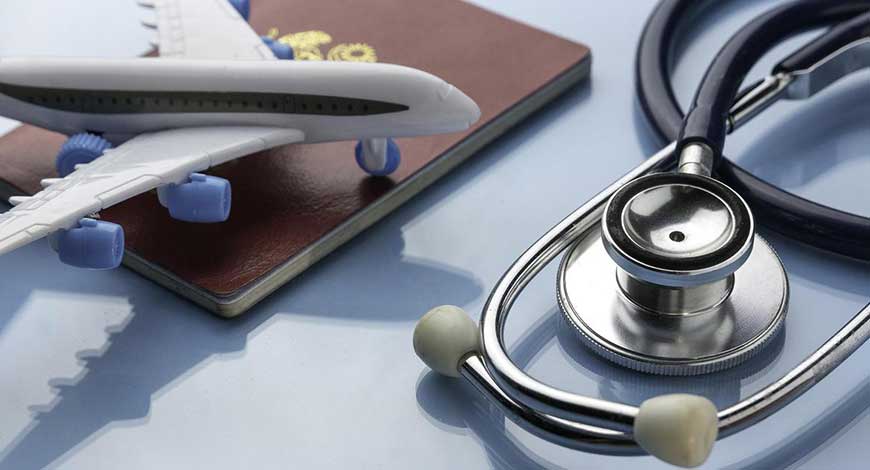Medical tourism has revolutionized how people access healthcare by offering high-quality medical treatments at affordable prices in destinations worldwide. This growing trend combines healthcare with the opportunity to explore new cultures, making it a practical and appealing solution for patients seeking better options beyond their borders.
This article provides a deep dive into medical tourism, its benefits, popular destinations, challenges, and tips for a successful experience.
What is Medical Tourism?
Medical tourism refers to the practice of traveling to another country for medical care, often at a lower cost or to access treatments not readily available in one’s home country. It encompasses a variety of healthcare needs, such as elective procedures, critical surgeries, dental care, and wellness therapies.
Why Do People Opt for Medical Tourism?
1. Cost-Effective Treatments
Medical procedures in many countries are significantly cheaper compared to nations like the United States, Canada, or the UK. Even after adding travel and accommodation expenses, patients can save up to 80%.
2. World-Class Facilities
Countries popular for medical tourism invest heavily in state-of-the-art healthcare infrastructure, ensuring high-quality services and advanced medical technology.
3. Access to Specialized Care
Some destinations are renowned for expertise in specific treatments, such as IVF in India or cosmetic surgery in South Korea.
4. Shorter Wait Times
In regions with overburdened healthcare systems, patients may face long wait times for surgeries or consultations. Medical tourism offers quicker access to necessary care.
5. Combining Healthcare with Travel
Patients can recover in serene, tourist-friendly locations, making the experience both therapeutic and enjoyable.
Popular Medical Tourism Treatments
- Cosmetic Surgery
- Procedures like facelifts, rhinoplasty, and liposuction are in high demand.
- Countries like Brazil and South Korea are globally recognized for aesthetic surgeries.
- Dental Care
- Dental implants, crowns, and orthodontic treatments are often much cheaper abroad.
- Mexico, Hungary, and Thailand are popular for dental tourism.
- Fertility Treatments
- IVF and surrogacy services attract many patients to countries like India, Greece, and Spain.
- Orthopedic Procedures
- Joint replacements and spine surgeries are frequently sought in destinations like India and Malaysia.
- Weight Loss Surgeries
- Gastric bypass and sleeve gastrectomy procedures are common in Mexico and Turkey.
- Wellness and Alternative Therapies
- Spa treatments, yoga retreats, and detox programs are integral to medical tourism in destinations like Thailand and Bali.
Top Medical Tourism Destinations
1. India
- Specialties: Cardiac surgery, organ transplants, and orthopedic procedures.
- Why Choose India: Cost-effective treatments and highly skilled professionals trained in globally recognized institutions.
2. Thailand
- Specialties: Cosmetic surgery, dental care, and wellness retreats.
- Why Choose Thailand: Luxurious hospitals and recovery in scenic tropical locations.
3. Mexico
- Specialties: Bariatric surgery, dental care, and cosmetic procedures.
- Why Choose Mexico: Proximity to the U.S. and affordable pricing.
4. Turkey
- Specialties: Hair transplants, eye surgeries, and cosmetic procedures.
- Why Choose Turkey: High-quality care combined with rich cultural experiences.
5. Malaysia
- Specialties: Cardiology, oncology, and fertility treatments.
- Why Choose Malaysia: Advanced healthcare facilities and relaxing recovery options.
6. South Korea
- Specialties: Cosmetic surgery and dermatology.
- Why Choose South Korea: Cutting-edge technology and innovative approaches.
Benefits of Medical Tourism
1. Significant Savings
Patients save thousands of dollars by opting for medical procedures abroad, without compromising on quality.
2. High-Quality Care
Top medical tourism destinations offer international accreditation and employ globally trained doctors and specialists.
3. Cultural Exploration
Traveling for healthcare provides an opportunity to experience new cultures, cuisines, and landscapes.
4. Tailored Services
Many facilities offer personalized treatment plans, VIP services, and multilingual staff to cater to international patients.
Challenges and Risks in Medical Tourism
1. Quality Variations
Not all providers adhere to international standards, so thorough research is essential to ensure safety and quality.
2. Travel Risks
Long flights or unfamiliar environments can pose additional risks, especially for those recovering from surgery.
3. Legal and Ethical Concerns
Different countries have varying laws regarding patient rights, malpractice, and insurance coverage.
4. Language Barriers
Communication challenges can arise in non-English-speaking countries, potentially impacting care quality.
5. Post-Treatment Complications
Managing complications after returning home may require additional resources and follow-up care.
How to Prepare for Medical Tourism
1. Research Destinations and Providers
- Check hospital accreditation, doctor qualifications, and patient reviews.
2. Consult Your Local Doctor
- Discuss your plans to ensure the treatment is appropriate and compatible with your medical history.
3. Understand the Costs
- Obtain detailed cost estimates and clarify any hidden fees, including travel and accommodation expenses.
4. Plan for Recovery
- Allocate enough time to recover before traveling back home.
5. Secure Medical Travel Insurance
- Protect yourself against unforeseen circumstances such as trip cancellations or medical complications.
6. Arrange Follow-Up Care
- Ensure you have access to local healthcare professionals for post-treatment consultations.
FAQs About Medical Tourism
Q1. How much can I save through medical tourism?
Savings range from 30% to 90%, depending on the procedure and destination. For example, a dental implant in Mexico might cost $1,000 compared to $5,000 in the U.S.
Q2. What is the safest way to choose a provider?
Opt for hospitals with international accreditation, such as JCI or ISO certifications, and consult reviews from past patients.
Q3. Is medical tourism safe for major surgeries?
Yes, provided you choose reputable facilities with skilled professionals and follow all pre- and post-treatment recommendations.
Q4. Can I combine medical treatment with a vacation?
Absolutely. Many medical tourism packages include wellness therapies and sightseeing opportunities.







